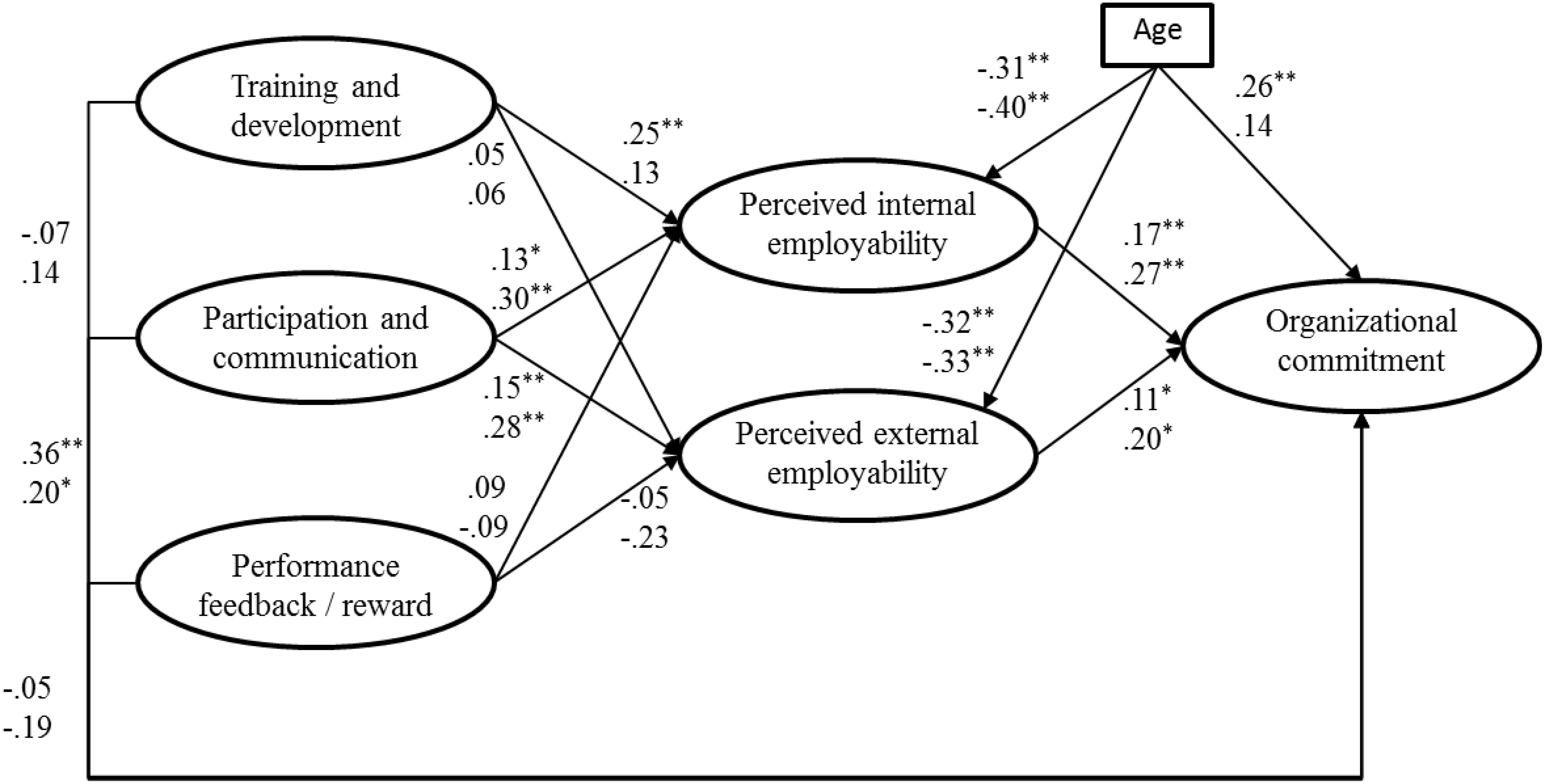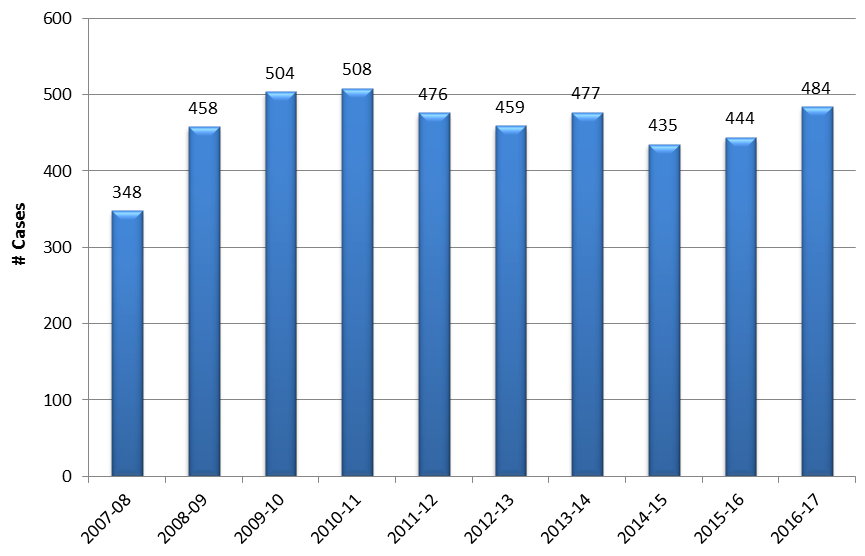Employer Mediation Programs
- Nevada Mediation Program
- King County Mediation Program
- Employer Mediation Programs 2020
- Oklahoma Mediation Program
The EEOC first implemented an agency-wide mediation program in 1999 and, since its implementation, it has been a popular option for employers to resolve charges of discrimination. However, the mediation program has historically only been available for certain categories of charges at the beginning of the charge process. The Employee and Labor Relations Division offers confidential mediation assistance to employees who are experiencing conflict in the workplace. Mediation occurs in an informal. The Employee Mediation Program was developed in the spring of 1998 out of a response by the City Manager and Department Directors to provide employees a means to resolve conflicts in the workplace. It began as a training program by a professional mediator and involved trainee representatives from every city department. The conciliation program requirements that personnel in the field must obtain approval from a higher level of management before making conciliation demands could provide more clarity and assurance on conciliation demands offered to employers, and the mediation program changes may allow for more opportunities for employers to resolve charges.
Mediation is an informal and confidential way for people to resolve disputes with the help of a neutral mediator who is trained to help people discuss their differences. The mediator does not decide who is right or wrong or issue a decision. Instead, the mediator helps the parties work out their own solutions to problems.
Note: Federal agencies are required to have an alternative dispute resolution program. Most use mediation, but not necessarily the EEOC process.
On July 6, 2020, the EEOC initiated a 6-month ADR pilot to expand parties’ access to mediation. On January 6, 2021, the pilot was extended through September 30, 2021. EEOC’s ACT (Access, Categories, Time) Mediation pilot expands the categories of charges eligible for mediation and, generally, allows for mediation throughout an investigation. Answers to questions regarding access to mediation, below, may therefore not accurately reflect the Commission’s past practice while the pilot is in place. For answers to questions regarding the ACT Mediation pilot, see “Questions and Answers: 2020 ADR Pilot” If you are a party to a charge of discrimination and are interested in mediation, refer to the Mediation Contact page to get in touch with a mediation coordinator.
Benefits of Mediation


One of the greatest benefits of mediation is that it allows people to resolve the charge in a friendly way and in ways that meet their own unique needs. Also, a charge can be resolved faster through mediation. While it takes less than 3 months on average to resolve a charge through mediation, it can take 10 months or longer for a charge to be investigated. Mediation is fair, efficient and can help the parties avoid a lengthy investigation and litigation.
EEOC's Mediation Process
Shortly after a charge is filed, we may contact both the employee and employer to ask if they are interested in participating in mediation. The decision to mediate is completely voluntary. If either party turns down mediation, the charge will be forwarded to an investigator. If both parties agree to mediate, we will schedule a mediation, which will be conducted by a trained and experienced mediator. If the parties do not reach an agreement at the mediation, the charge will be investigated like any other charge. A written signed agreement reached during mediation is enforceable in court just like any other contract.
Nevada Mediation Program
Duration and Cost of Mediation
A mediation session usually lasts from 3 to 4 hours, although the time can vary depending on how complicated the case is. There is no charge to either party to attend the mediation.
Who Should Attend the Mediation
All parties to the charge should attend the mediation session. If you are representing the employer, you should be familiar with the facts of the charge and have the authority to settle the charge on behalf of the employer. Although you don't have to bring an attorney with you to the mediation, either party may choose to do so. The mediator will decide what role the attorney will play during the mediation.
Mediation Programs
The City and County of Denver offers a number of free mediation programs to its employees, law enforcement, and members of the public. Please review the following programs, and choose which best fits your particular situation.
Office of the Independent Monitor's Community-Police Program
King County Mediation Program
The Office of the Independent Monitor’s Community/Police Mediation Program allows community members to address certain complaints about police conduct by discussing them one-on-one with the officer (with the help of a neutral mediator). If you have filed a complaint against a police officer or deputy sheriff in Denver and would like more information about the Office of the Independent Monitor’s Community-Police Complaint Mediation Program, please fill out the form, below.
Workplace Mediation
If any City and County of Denver employee or supervisor/manager has a work-related issue, outside mediation may be requested. Mediation is a free, efficient, and effective means to resolve all sorts of workplace and personality conflicts —taking only a few hours of your time to create a more comfortable work environment. Mediations are conducted by a neutral and experienced outside contractor, and are both free and confidential. If you would like to initiate mediation with a coworker, please fill out the form,
Neighborhood Mediation

Having conflict with your neighbor? So many times we’re not sure where to turn or what to do when our quality of life is impacted. The City provides an independent, objective and professional mediation and conflict resolution resource to help you resolve conflict within your neighborhood. Common issues that are mediated include barking dogs, parked cars, landscaping, businesses impacting a neighborhood and noise complaints. All you’ve got to do is visit our mediation partner, Find Solutions!
Request For Mediation
Employer Mediation Programs 2020
Mediation is a voluntary and confidential process in which a professional mediator not employed by the City and County of Denver assists employees in conflict to reach a mutually acceptable resolution. Any employee, supervisor, manager, or appointing authority may submit a request for mediation as a way to resolve a work-related dispute with another employee, supervisor, or manager.
NOTICE! USERS MUST USE CHROME (NOT INTERNET EXPLORER) TO COMPLETE THIS FORM
Oklahoma Mediation Program
Disclaimer: This video is for basic information regarding the mediation process. Consulting Dr. Klowait is not affiliated with the City & County of Denver.
Free mediation services for city employees are provided by Community Mediation Concepts, an independent nonprofit organization, under contract with the City and County of Denver. Please contact Steve (Steve@FindSolutions.org).
